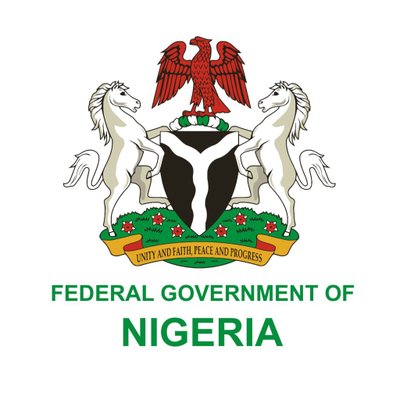
By Glory Jul, 28, 2022 Finance
According to the Federal Government (FG), the $35
million disbursement from the Excess Crude Account (ECA) is from June 2022 and
is an advance payment for the purchase of brand-new Offshore Patrol Vessels
(OPVs) for the Nigerian Navy. This is in response to a report that showed that
Nigeria's Excess Crude Account shrank from $35.37 million to $376,655.
The $35m disbursement from the Excess Crude Account (ECA) is from June 2022, & is an advance payment for the purchase of brand new Offshore Patrol Vessels (OPVs) for the #NigerianNavy, as part of efforts to consolidate on maritime security gains recorded in the Gulf of Guinea. 1/ https://t.co/bEJxhJxHV3
Despite greater oil revenues, the federation has not
contributed to the ECA this year. The ECA is a savings account held by the
Federal Government. It is financed by the difference between the market price
of crude oil and the budgeted price of crude oil as stated in the appropriation
bill.
With regard to the Excess Crude Account, the Finance
Minister Zainab Shamsuna Ahmed stated that in the past four years, market
volatility on oil, Nigeria has not had accrual to the excess
cause account. This is why the ECA has not been funded for a while now.
“So, what we have had, has been gradually used up
for different purposes and it is always used in consultation with the National
Economic Council, that is the governors, because this is a federation account,”
Ahmed said. “The last approval that was given by the council was the withdrawal
of $1billion to enhance security. We have been utilizing that.”
“The last trench of that has been finally released
because deployment to security agencies are based on the contracts executed and
it’s been used strictly for that security purpose.”
It was further said that the action was taken as
part of efforts to build on the improvements in marine security seen in the
Gulf of Guinea.
Lately, the International Maritime Bureau (IMB)
observed that there were zero actual and attempted
piracy/ship-armed-robbery events on Nigerian waters in the first half of
this year. In addition, Nigeria was removed from the International
Maritime Bureau (IMB) Piracy list earlier this year.
Because of pipeline theft, underinvestment, and
other factors that have restricted oil shipments, Nigeria, traditionally
Africa's major oil exporter, has found it difficult to profit from rising crude
prices.
The Excess Crude Account (ECA) and oil subsidies
have both depleted state coffers. In the first four months of 2022,
Nigeria's debt servicing expenditures exceeded public revenue.
The Nigerian economy is "hurtling towards
a fiscal crisis without the buffer that the ECA provided in 2008 to 2010,"
according to Tunde Ajileye, partner of Lagos-based risk advisory firm SBM
Intelligence.
“The Excess Crude Account, which stood at
$2.1billion when President Buhari took over in 2015, has dropped to $376k
[now],” he said. “This is in spite of oil prices that have been consistently
above the oil price benchmark of the federal budget.”
Costs of debt in Nigeria typically fall below
income. The nation's budget was supported by oil money for many years. It is
now attempting to increase its tax base, but is constrained by an antiquated
tax collection system.
Tags: Nigerian Govt Excess Crude Account ECA Recession Debt
Share On Facebook Twitter Linkedin Whatsapp Telegram
Categories
Latest Post
- Nigeria Taps Global Markets with $2.25B Eurobond Sale
- Boeing Shares Rise as CEO Confirms China Deliveries to Resume Next Month
- STOCK SPOTLIGHT: UNION HOMES REAL ESTATE INVESTMENT TRUST (UHREIT)
- Nvidia Q1 2025 Earnings Report Summary
- 📉 U.S. Market Summary – May 28, 2025
- CBN Launches New Financial Tools to Boost Nigeria’s Non-Interest Banking Sector! ✨
- Market Watch: Key Updates as Wall Street Awaits Nvidia and Salesforce Earnings
- U.S. Equity Markets Rally as EU Tariff Deadline Is Extended and Consumer Confidence Surges
- Things to Know Before the U.S. Stock Market Opens
- What to Expect in the Markets This Week (May 27–31)

Start investing with Acorns today! Get $5 when you use my invite link: Z24WWE
